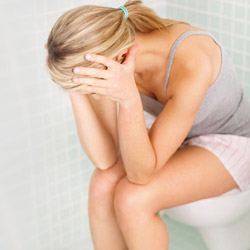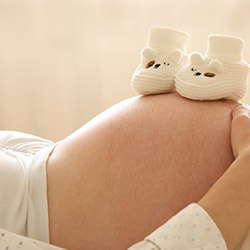Uterine Disease
The uterus, or womb, is the place where a baby grows when a woman is pregnant. A number of medical conditions can affect the uterus, such as polyps, endometriosis, fibroids, and cancer.
Symptoms of different uterine conditions are similar and may include pain or discomfort in the pelvic and lower abdominal region that may spread to the mid-abdomen or lower back. Irregular menstrual bleeding and difficulty getting pregnant can occur due to conditions that affect the uterus. Many uterine conditions are not dangerous, and can be treated with minimal intervention, but some uterine conditions are serious and can pose a threat to your health.
Uterine disease's causes, such as polyps, fibroids, endometriosis, adenomyosis and chronic pelvic pain are unknown, however they appear to be associated with imbalanced hormones, stagnation of blood and dampness of the body. Acupuncture and Korean herbal medicine treatment helps to balance hormone levels, improve the uterus blood flow and clear any unwanted sediments. The inflammatory reaction which the body has set up in response to the endometrial tissue in an attempt to repair the uterus makes the immune system reactive to the cells that make up the uterine lining.
Typical Symptoms

Irregular menstrual periods

Vaginal discharge

Pelvic pain or discomfort

Lower back pain

Trouble with urination

Difficulty in becoming pregnant
Polyps:
Small, soft growths inside the uterus that may cause heavy menstrual bleeding, spotting between periods, and bleeding after intercourse.
Fibroids:
Growths in the walls of the uterus or the lining of the uterus, sometimes outside of the uterus by a stalk. It is a kind of benign tumor that develops in or around the uterus. Symptoms include heavy or prolonged bleeding between or during menstruation, pelvic pain with pressure, back pain, pain during intercourse and difficulty getting pregnant.
Endometriosis:
The same kind of tissue that lines your uterus also grows in other parts of the body, usually in the abdomen or ovaries. Symptoms include painful or heavy menstruation, irregular bleeding or spotting, pain during or after intercourse, pain in the abdomen or intestines, and pain during urination or while having bowel movements.
Chronic Pelvic Pain:
Without any identifiable cause of your pain, you may be diagnosed with chronic pelvic pain which may be more sensitive to conditions that cause pain, such as a gastrointestinal infection or a bladder infection.
Make an Appointment
Ready for a healthier, happier life? Make an appointment with us to receive the highest quality of care.
Make an Appointment Now
